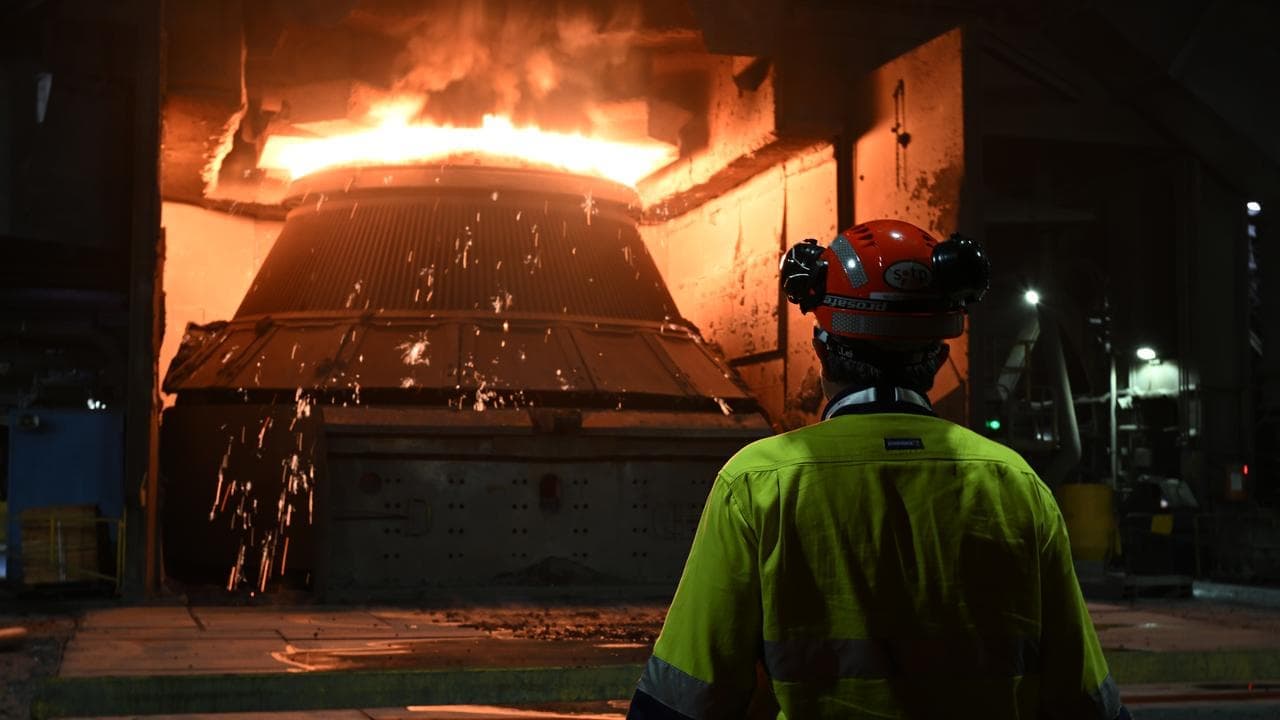WHAT WAS CLAIMED
The earth was warmer in 1000AD, 400BC and 2000BC.
OUR VERDICT
Misleading. The claim is based on outdated and selective climate data.
AAP FACTCHECK - Outdated and selective climate records are being used by social media accounts to claim the earth was warmer at different periods in the last 4000 years.
While models differ and there's a degree of uncertainty when assessing historical temperatures, the best available evidence indicates global temperatures were hotter last decade than in at least the previous 2000 years.
The latest Intergovernmental Panel on Climate Change (IPCC) assessment suggests current temperatures may even be the warmest when compared to any multi-century period for more than 125,000 years.

The claim was made in a Facebook post on the Climate Change is Crap page, which said: "The earth is not as warm today as it was a 1000 years ago during the Medieval Optimum when the Vikings settled Greenland.
"It's not as warm now as it was 2400 years ago during the Classical Optimum which saw the rise of the Greco Roman civilizations.
"The earth isn't anywhere close to being as warm today as it was 4000 years ago at the height of the Minoan civilization."
An administrator for the Facebook page told AAP FactCheck the claim was based on data derived from Greenland ice cores.
However, the data from one Greenland ice core in particular has been used to spread misinformation about climate change for more than two decades, and the latest research tells a different story.
The periods identified in the Facebook post correspond to those shown in an analysis of the Greenland Ice Sheet Project Two (GISP2) ice core from a 2010 blog post by geology professor Don Easterbrook.
AAP FactCheck has previously debunked claims stemming from this ice core, with experts saying it was "very misleading" to draw conclusions about past temperatures from one record in a single location.

The ice core was recovered in 1993 and at the time it was the deepest core ever recovered, while temperature reconstructions from it were first published in the mid-late 1990s.
Since then, more extensive climate records have been developed drawing on hundreds of different sources across the globe.
As this record, and methods of interpreting it, have improved, scientists have discovered that high latitude parts of the northern hemisphere such as Greenland experienced more pronounced warming during certain historical periods.
When looking at global temperatures, experts told AAP FactCheck the best current evidence suggests the last decade may have been the warmest period in more than 100,000 years.
This understanding has developed over time. In 1990, the first IPCC report said there was "growing evidence" that global temperatures were warmer in the mid-Holocene between about 3-5000BC "at least in summer" (page 202).
The report included a graph (Figure 7.1, p202) that suggested the earth was warmer around 1200AD and between about 2000BC and 7000BC.
However, the most recent IPCC assessment, published in 2021, said there was a medium level of confidence (a 50 per cent chance of being correct) that temperatures last decade were higher than any other centuries-long period in about the last 10,000 years.
It said the next warmest period was likely around 4-5000BC, in the mid-Holocene, when temperatures were about 0.2C to 1.0C warmer than the 1850-1900 average.
By contrast, temperatures between 2011-2020 were 1.1C warmer than 1850-1900.
"It is therefore more likely than not that no multi-centennial interval during the post-glacial period was warmer globally than the most recent decade," it said.
It also noted that areas north of 30th parallel in the northern hemisphere, including Greenland and Europe, experienced more pronounced warming during the mid-Holocene period.
The most recent period with similar global temperatures was likely about 125,000 years ago, it said.

The IPCC report drew on a 2020 temperature reconstruction led by Darrell Kaufman, an expert in climate history at Northern Arizona University.
This study included records from almost 700 sites, including ice cores, tree rings, ocean sediments, pollen deposits and fossils.
It found global temperatures likely peaked around 4500BC, with the highest 200-year interval being 0.7C warmer than in the 19th century and then steadily declining, albeit with small increases around 2000BC and 1000AD.
However, this peak was less than the 1.1 degrees of warming experienced last decade, 2011-2020.
The earth is also continuing to warm. The World Meteorological Organization reported that 2024 was the warmest year on record at about 1.55C above pre-industrial temperatures, and the last 10 years were the warmest on record.

Professor Kaufman told AAP FactCheck the claim in the Facebook post was false.
"While there certainly is convincing evidence for modern-day-like temperatures in places during these times, other places were cooler, so the global mean temperature was overall lower than the 1.2°C rise - and climbing - seen since industrialization," Prof Kaufman said.
Other temperature reconstructions have made similar findings.
A 2021 paper found "both the rate and magnitude of modern warming are unusual relative to the changes of the past 24 thousand years," though also that temperatures were relatively stable, rather than declining, over the last 6000 years.
A 2013 paper found 2000-09 temperatures were warmer than any period in the last 2000 years and similar, although slightly cooler, than mid-Holocene temperatures between about 3-8000BC.
Jeremy Shakun, a paleoclimatologist at Boston College who co-authored this paper, told AAP FactCheck the claim in the Facebook post is "a nonsense, very old and long since invalidated talking point".
"Lots of research suggests today is warmer *globally* (if not in every single region) than anytime in at least 2000 years," Associate Professor Shakun said.
Indeed, a 2019 temperature reconstruction found temperatures were higher than any period in the last 2000 years.
Raphael Neukom, a climate researcher at the University of Bern who contributed to this paper, told AAP FactCheck there were "multiple lines of evidence" that showed the claim in the Facebook post wasn't accurate
"There were some regional warm phases that were as warm as the early 21st century or even warmer (e.g. in Europe) due to natural variability, but on the global scale, we see no such signal," Dr Neukom said.
He also explained that whether one past period was warmer than the present was not proof that climate change wasn't occurring, or wasn't being driven by greenhouse gas emissions, as past warm periods could be explained by natural factors.
"Each warm period needs also to be assessed for its driving forces, not just by the temperatures," Dr Neukom said.
Kim Cobb, a professor and climate scientist at Brown University, and Josephine Brown, a paleoclimate modeller at the University of Melbourne, both said the claim wasn't accurate and referred to the latest IPCC report.

Jan Esper, a paleoclimatologist at Johannes Gutenberg University of Mainz, was more cautious.
He told AAP FactCheck it was difficult to definitively refute claims about past global temperatures as there was still a lack of data for parts of the earth in certain periods.
While Professor Esper said he was "fairly convinced" the last two decades had been the warmest experienced in the last 2000 years, he said there was not yet enough data to definitively show peak temperatures between 2000-4000BC weren't warmer.
This was because the current evidence only showed temperatures averaged over many centuries during this period, making it difficult to determine whether some decades may have been warmer.
However, he said temperatures were warmer during the mid-Holocene due to changes in the earth's tilt and orbit around the sun.
Current warming, meanwhile, was due to greenhouse emissions "which without doubt is driving us into very dangerous territory", he said.
AAP FactCheck is an accredited member of the International Fact-Checking Network. To keep up with our latest fact checks, follow us on Facebook, Twitter and Instagram.












